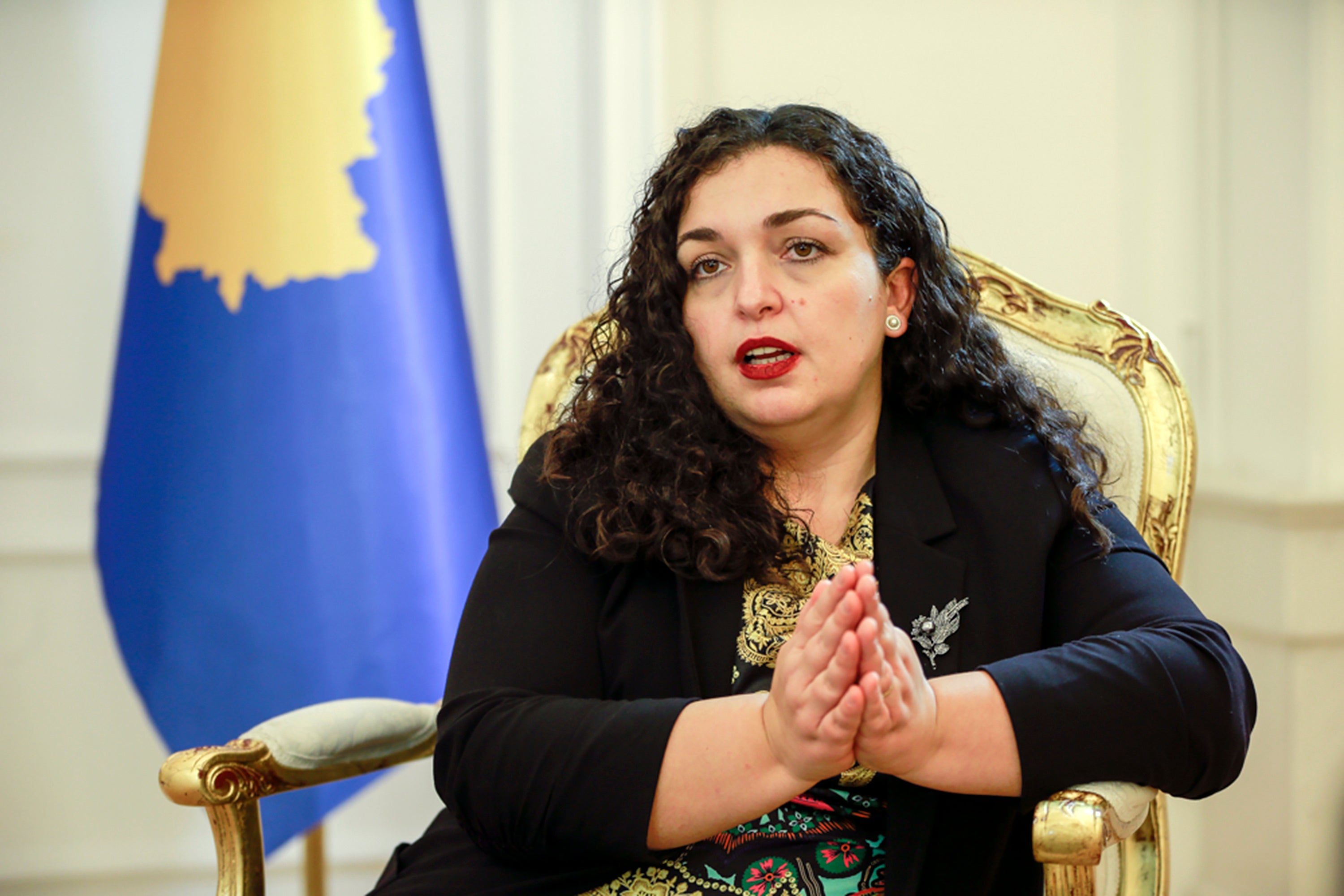AP Interview: Kosovo sees EU favoring 'spoiled child' Serbia
Kosovo’s acting president has accused the European Union of not treating Kosovo on “an equal footing” with neighboring Serbia in the negotiations to normalize ties between the former war foes

Your support helps us to tell the story
From reproductive rights to climate change to Big Tech, The Independent is on the ground when the story is developing. Whether it's investigating the financials of Elon Musk's pro-Trump PAC or producing our latest documentary, 'The A Word', which shines a light on the American women fighting for reproductive rights, we know how important it is to parse out the facts from the messaging.
At such a critical moment in US history, we need reporters on the ground. Your donation allows us to keep sending journalists to speak to both sides of the story.
The Independent is trusted by Americans across the entire political spectrum. And unlike many other quality news outlets, we choose not to lock Americans out of our reporting and analysis with paywalls. We believe quality journalism should be available to everyone, paid for by those who can afford it.
Your support makes all the difference.Kosovo’s acting president accused the European Union on Friday of not treating Kosovo on “an equal footing” with neighboring Serbia in the negotiations to normalize ties between the former war foes.
Vjosa Osmani, the second female head of state in post-war Kosovo, told The Associated Press in an interview that she thinks Brussels has not learned from past mistakes and treats Serbia as “a spoiled child.”
“We need to be considered on an equal footing during this dialogue. If that happens, it sets a path for a successful dialogue in the future,” Osmani said in an interview to the Associated Press.
The EU has facilitated Kosovo-Serbia negotiations since 2011, but few of the more than 30 signed agreements the talks yielded have been applied.
Osmani, 38, took over as Kosovo's president this month when former President Hashim Thaci resigned to face war crimes and crimes against humanity charges at a special court based in The Hague, Netherlands. Osmani is expected to serve in an acting capacity for a maximum of six months.
Thaci, former parliamentary speakers Kadri Veseli and Jakup Krasniqi, and two other former top commanders of the Kosovo Liberation Army that fought for independence from Serbia are on trial. None of them have accepted any of the charges.
Osmani said that while Kosovo was establishing a world precedent by having top officials willingly going to the court, Serbia, “a state sponsored regime (which) killed civilians, many of whom were little children, is not doing the same."
“They deny all of the horrible crimes that they committed all across Yugoslavia, but specifically in Kosovo” during the 1990a, she said.
The 1998-1999 war in Kosovo, then a Serbian province, ended after a NATO military intervention that forced Serbia to withdraw its forces. The United Nations ran the territory for nine years before Kosovo in 2008 declared independence, a move that Serbia doesn’t recognize.
More than 10,000 mainly ethnic Albanians were killed and more than 1,600 are still missing from the war.
Osmani said that Serbia lost Kosovo in 1999 when they “abused the power of territorial integrity and the principle of sovereignty to kill the people that lived in that territory.”
“Once they accept that reality, then we can have a successful dialogue,” she said.
“I hope that the international community will understand that without putting pressure on Serbia, they will never change,” Osmani said, adding: “There has still been no justice for the victims” more than two decades after the conflict ended,
——-
Semini reported from Tirana, Albania.